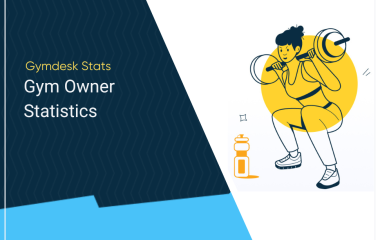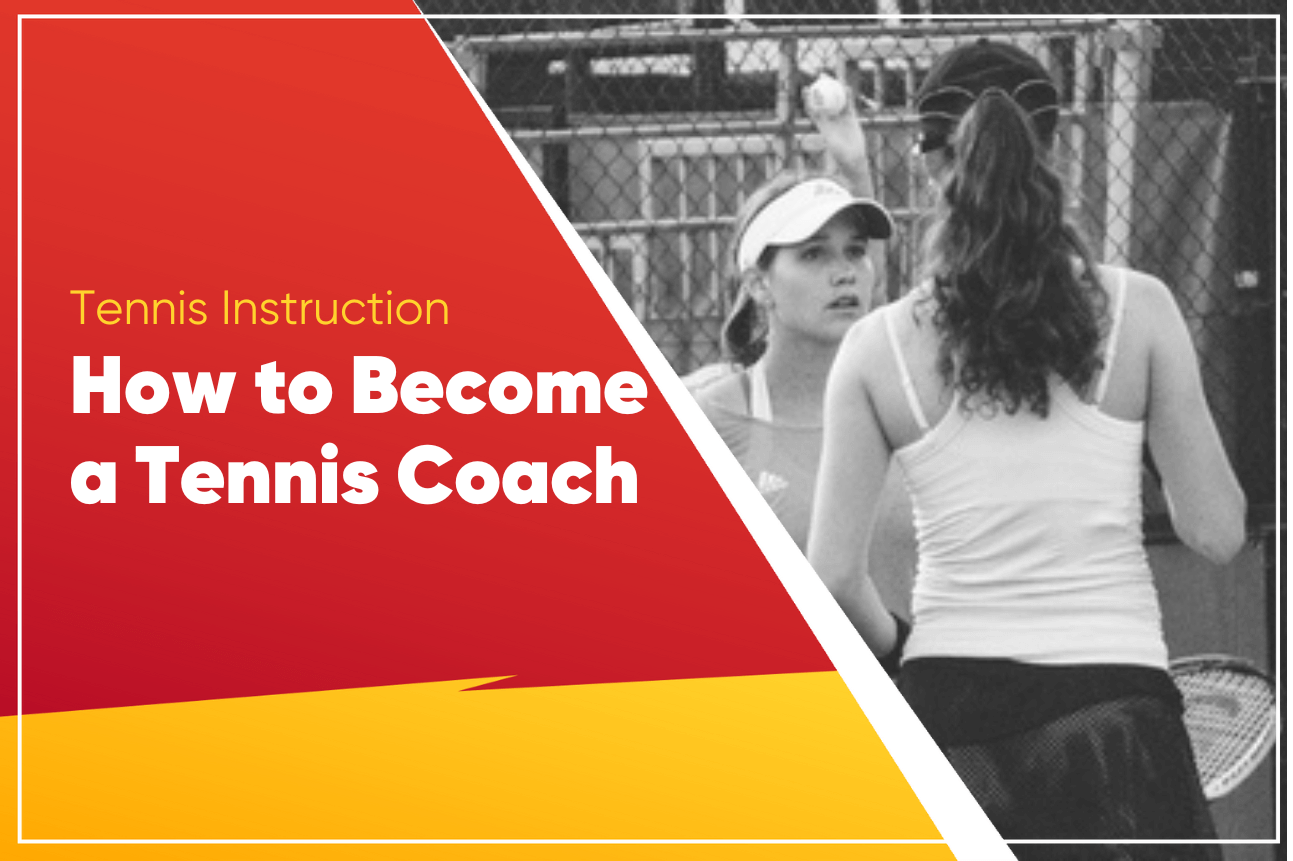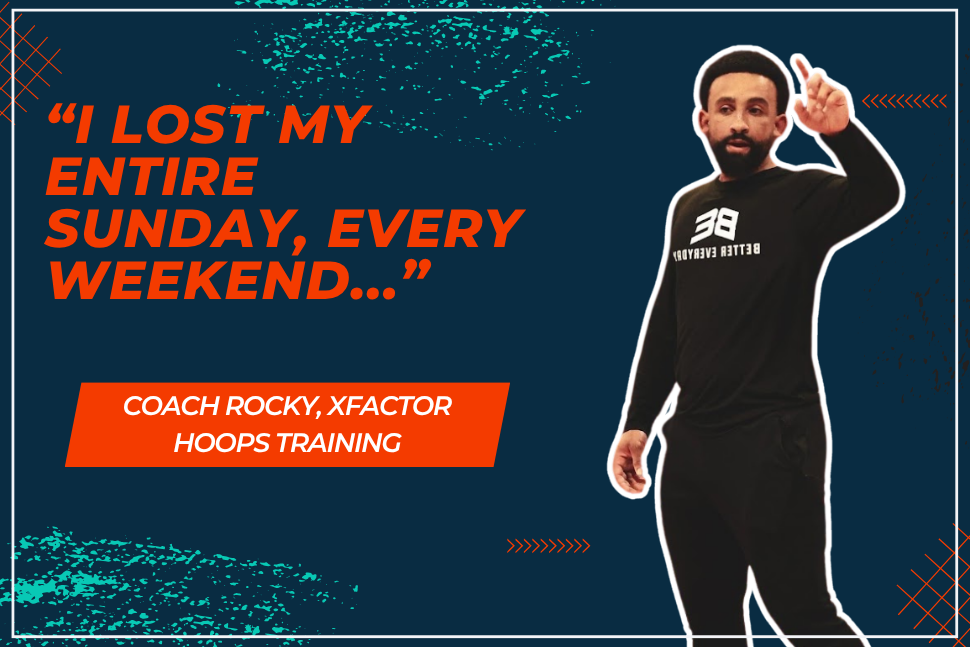Do you want to make a career out of tennis but don’t quite have what it takes to be a professional player? Considering coaching but not sure how to go about it?
We’ve got you covered. In this article, we’ll lay out a step by step guide to becoming a tennis coach. Here’s what we’ll cover:
- Do you have to be a great tennis player to coach?
- Do you need a degree?
- Do you need a certificate to coach tennis?
- Personal skills needed to be a great tennis coach?
- Step One: Develop your Skills
- Step Two: Play Competitively
- Step Three: Learn the Rules
- Step Four: Volunteer
- Step Five: Decide What Type of cach You Want To Be
- Step Six: Choose Course of Study
- Step Seven: Complete Your Course of Study
- Step Eight: Apply for a Tennis Coaching Job
Do You Have to Be a Great Tennis Player to Coach?
Before we get into the specifics of what steps to follow to become a tennis coach, let’s address a common belief that I’ve encountered. Many people think that only top tennis players should become coaches. So, do you have to be a great player in order to coach?
The answer is no. If you are a decent player (a 5 or above on a scale of 1 to 10), you should be able to be a good coach. There are many examples of coaches who are not very good players who have coached some of the greatest players the game has ever seen. Often these are the parents of the players (ever seen King Richard?).
When it comes to the elite level, the coach does not need to know how to play tennis in order to do his job effectively. At this level players play automatically, requiring very little technical work once they’ve reached the highest level. At that stage, it’s the small things that need to be corrected.
Most of the training at the elite level is mental. While it can help to have the experience of playing at the elite level as a coach, it is certainly not a requirement. Tennis is an intuitive game where players don’t think about technical performance. Of course, as a coach you need to be familiar with the technical fundamentals of the game in order to improve your students’ game at the junior or recreational level.
It is amazing how many former professional players know nothing about technique. If they decide to become coaches, they will be of little value to the students unless they develop that knowledge. On the other extreme, you could have a person who is very knowledgeable about science and biomechanics and the technical aspects of the game and yet be a relatively weak tennis player. If these coaches are unable to walk the walk, they too will be of little value to the students.
So, while you don’t need to be an awesome tennis player to be a coach, you do need to be a decent enough player. The key is to get the balance between knowledge of the technical elements of the game and experience on the court enabling you to rally with your students and feed balls to them.
Do you Need a Degree?
You do not need a degree in order to start to coach tennis. However, you should obtain a tennis coaching certification from one of the major certifying bodies (more on this later).
While a degree is not a prerequisite to become a coach, a working knowledge of such subjects as biomechanics, kinesiology and sports psychology will be extremely useful. Of course, you don’t have to go to university to gain that knowledge. There are many online resources you can study to provide you with that knowledge. I encourage you to take on your own study program where you spend a couple of hours every week learning about these three key subjects:
- Biomechanics
- Kinesiology
- Sports psychology
The only exception to the no degree required to become a tennis coach advice is that some colleges may require tennis coaches to have a degree in one of the above-mentioned disciplines.
There are also three colleges in the United States that offer a four-year degree called Professional Tennis Management. If you are currently in high school and have decided that you want to spend the rest of your life as a tennis coach, this degree is well worth considering.
The three colleges that offer this degree are:
- Ferris State University (Michigan)
- Tyler University (Texas)
- Methodist College (North Carolina)
This is a business marketing four-year degree that combines other elements of professional tennis, and being in the tennis industry. Ferris State was the first college in the US to provide this type of program. The college has a very strong NCAA tennis team. The college also has an awesome indoor facility.
Check out the Professional Tennis Management degree at Ferris State here.
So, Do You Need a Certificate to Coach Tennis?
Having established that you do need a degree to be a tennis coach, let’s now turn to the next obvious question …
Do you need a tennis coaching certification to start coaching?
This is actually quite a controversial topic. There are many coaches who have built successful coaching careers both with and without a certification. So do you really need to go to the expense and effort to gain a certification?
The first thing you need to think about is what is your goal in getting a tennis coaching certificate. Is it to gain a qualification and then go and work for a club? In some countries you will be required to have a certification. In other countries, you don’t need a certification but can apply for jobs if you have coaching experience.
From a legal perspective, you do not need a coaching certification to start holding your own private lessons. That applies the entire world over.
So, what are the pros and cons of having a tennis coaching certification?
Pros:
- A tennis coaching certification will come with an insurance and liability plan. This coverage will be included with your annual dues to keep the certificate current. The USPTA and PTR (more on them later) offer coverage of around $6 million for any injuries that take place on court during practices.
- A certificate will give you a greater measure of authenticity. This will make it easier for you to build a client base. The certificate gives your students the assurance that you’ve gone through training to be a coach and have the instructions dn knowledge base to start teaching them.
- Certificate study involves workshops that will provide in-depth training on how to coach and help your students to grow as players.
Cons:
- You have to make an upfront financial commitment. This can range from $100-400. These are usually annual fees that you need to pay every year to keep the certificate current.
- The certificate is not a requirement. So, if you’re starting your own coaching academy, you may be better putting the effort into building the business than getting a qualification that you don’t actually need. [link to article on how to start a tennis club]
- Clients will not be required to pay more if you are certified. In reality, very few people will ask to see your certificate before they sign on with you. They will be more interested in whether you’ve got a track record of getting results. So social proof can be a more important factor than being able to point to a certificate.
So, what can we conclude?
If you are going to be starting your own tennis coaching business, you do not need a tennis certificate. You can get started without it and build your business on social proof from satisfied customers. Then, as your business develops, you may choose to get a certificate in order to boost your credibility.
However, if you are going to be applying for jobs as a tennis instructor, you will definitely need a certificate. Employers will most probably have it as one of their non-negotiables. So, if you don’t study to gain certification, you will be putting a major obstacle in your path to securing a tennis coaching job.
In the steps to becoming a tennis coach that are outlined in this article, I will proceed on the basis that you are going to be applying for a coaching position. Therefore, gaining your tennis coaching certification will be one of the steps.
Personal Skills Needed to be a Great Tennis Coach
More than just technical proficiency is needed to be a tennis coach. In order to inspire and excite your students to perform at their best, you’ll also need to be an encourager and motivator of others with strong verbal communication skills. You must be able to give directions in an understandable and concise manner.
A successful coach should have highly developed people skills to be able to interact constructively and empathetically with kids and their parents at all ages, as well as with other coaches and staff. They should be impartial, reasonable, capable of making difficult decisions swiftly, patient, analytical, and perceptive. He or she should also have a knack for organization and planning.
Step One: Develop your Skills
Having just explained that you don’t need to be an awesome tennis player to be a good coach, we now pivot to the first step in the coaching process, which is to learn to play the game. Your goal in doing this is not to become the next Nadal, but to learn the correct fundamentals of the game.
Even if you are a relatively proficient self-taught player, I recommend taking lessons for two reasons:
- You will learn the proper technical aspects of the game in order to be able to impart them to others.
- You will be able to observe the coaching skills of others, and learn from them not just how to play the game but how to coach it.
Step Two: Play Competitively
If you are a young person wanting to embark on a tennis coaching career, I recommend getting a couple of years of competitive tennis under your belt. While you don’t have to be an outstanding player to coach, employers do look with favor upon prospective coaches who have competitive experience.
If you’re still at school, join the school team. College attendees should do likewise. While you don’t have to have a slew of competition titles under your belt to secure a coaching job, the experience of competition, both physically and mentally, will be an invaluable boost to your coaching capabilities.
If you are entering into a tennis coaching career later in life, I still recommend getting some competitive experience at your level.
Step Three: Learn the Rules
As you are developing your skills and getting some competitive experience, you should simultaneously be studying the rules and regulations of the game. The International Tennis Federation rules and regulations are published on the ITF website. You should study these rules and regularly check on the website for updates and amendments.
During this time, you should also be absorbing as much information as you can from other players and coaches about what makes an effective tennis coach. Expose yourself to as many different coaches and coaching styles as you can. Keep a journal of how effective these coaches are and how you respond to them mentally and emotionally. Talk to other players about what they value in a coach and what things turn them off. By building up his reservoir of feedback and personal experience, you will become a better coach yourself.
Step Four: Volunteer
Get your foot in the door at your local tennis club by volunteering to help out. You may be able to assist with the junior lessons for five and six-year-olds, or even with the club’s tiny tots program. If you are able to display enthusiasm and passion and make a connection with the students, you’ll make an impression upon the management.
Volunteering to assist in this capacity will also provide you with invaluable real-world experience of interacting with students. That is something that you cannot learn in a book or by developing your own individual playing skill. A large club that has a big instructional program will likely provide you with a path to becoming a fully fledged coach if you demonstrate the attitudes and skills that they are looking for.
Having gained some experience in a volunteer capacity, you should next try to secure a job as a tennis instructor at a summer rec program.These programs are very popular over the summer school holidays. As well as allowing you to build your resume, such a position will provide you with further valuable experience working with young people. Rec program managers will often employ first time instructors, provided that they have a clean police record.
Often, summer rec programs have a very large teacher to student ratio. Ideally, though, you will want to train students on a 1 to 5 ratio or lower.
Step Five: Decide What Type of Coach You Want To Be?
You are now at the point where you should begin looking for a course of study to give you the accreditation you need to secure a coaching position. Before doing that, however, you need to decide on what type of coaching you want to do.
Decide whether you want to concentrate on coaching children and young adults or whether you will exclusively be working with those over the age of 18, or even with seniors only. Will you exclusively work with performance players at the club of college level, or will you concentrate on recreational players? Maybe you will set your sights on the ATP tour.
You must pass a police background check before you spend any money or commit to any study time. This is especially important if you want to work with clients who are younger than 18. Your job as a tennis coach won’t even be considered if a criminal background check comes back negative. So make sure to overcome this obstacle before moving on to the next step.
Step Six: Choose a Course of Study
You have now reached the stage where you need to embark upon a course of study to achieve the qualifications that will open the door to a professional coaching career. There are two tennis coaching certifying bodies in the United States:
- USPTA
- ITF
When it comes to deciding between each one, I did some research, looking into online comments on various tennis forums. Here are some interesting comments I came across on the Talk Tennis forum on the Tennis Warehouse site …
If you ask me (I am PTR Certified) I will say PTR, but let me be honest with you both are great. I do think that PTR certification is more practicable, and USPTA is more strict. In the USA both are recognized by the USTA. Internationally, however, the ITF-certifications Level-II and Level-III have outshadowed both PTR and USPTA. ITF’s Level II and III Certifications are the best in the business.
Mahboob Khan
If you want to coach worldwide not only in the US I would go with the PTR!
The PTR is accredited by the ITF, ATP, WTA, USTA, LTA, FIT etc.
Now the PTR has new pathways in which you can get certified.
There is Junior Development, Performance and Adult Development.
The PTR also offers a Master of Tennis in these 3 categories. The PTR Master of Tennis – Performance is even linked to the ITF’s highest level course!
I have worked as a coach in Europe and in the US.
I can highly recommend the PTR!
Delpojuice
USPTA is usually more recognized
SyndeyGym
As mentioned by one of the posters, the PTR is a great option if you are going to be coaching beyond the borders of the United States. In order to train with the PTR you will first need to join by paying a $210 fee.
USPTA
The United States Professional Tennis Association (USPTA )was the first USTA accredited association under the USTA Accreditation Program.
With more than 14,000 members worldwide and 17 divisions nationwide, the Association’s mission is to raise the standards of tennis-teaching professionals and coaches and to promote a greater awareness of the sport.
The USPTA offers its members more than 60 professional benefits, including on-court liability insurance, health insurance assistance, a supplemental savings plan for retirement and offers more than 200 education events a year for members to improve their teaching skills and increase their business knowledge.
The USPTA provides the following three levels of coaching qualification:
Tennis Instructor
Your path to becoming a tennis instructor will begin with this most fundamental level of training. There are several online courses that must be taken and finished, as well as a 2-day workshop called “Teaching Essentials 1.” With this certification, you can start teaching and become qualified for liability insurance from the USPTA.
Professional
Anyone who wants to teach tennis as a full-time professional needs to have at least this level of certification. The program consists of 12 online courses, six one-hour webinars, and a three-day in-person workshop that is primarily devoted to teaching groups, and is more in-depth than the certification needed to become a tennis instructor (although that qualification must be earned first).
Master Professional
The USPTA offers this certification at the highest level. You need to have been a professional coach for at least ten years in addition to having finished 80 hours of specialized training in order to qualify. Additionally, you will be required to submit a portfolio with examples of your successes.
ITF
The International Tennis Federation will provide you with a more internationally recognized qualification than the USPTA. The ITF offers the following courses:
Play Tennis Course
Enables you to work with beginners (ITN 10) and young children. The course requires at least 32 hours of tutor contact.
Coaching Beginner And Intermediate Player Course
Allows you to work with players up to ITN 6, and requires 80 hours of tutor contact.
Coaching Advanced Players Course
Prepares you to coach players of up to ITN3 and needs 80 hours of tutor contact.
Coaching High Performance Players Course
Provides you with the knowledge required to work with players of the highest ITNs, up to 1, and requires 88 hours of tutor contact.
All of these courses are available online, but they do require a certain amount of direct tutor contact. If you dedicate yourself to your program of study, you should be able to progress from one level to the next in around six months.
Step Seven
Complete Your Course of Study
You may receive a study package that includes textbooks, lecture videos, whiteboard animations, flashcards, study questions, and practice examinations, depending on the course you enroll in.
The majority of courses will also call for your attendance at a live workshop at some point.
Here are some pointers to help you with your study:
- Be patient with your studies. To get the most out of the course material, use the entire given time.
- Make a study regimen and follow it religiously. Give yourself more time than you anticipate needing.
- Spend the extra time reflecting on the knowledge and putting all the pieces together to build a whole.
- Early in the morning, study. There will be less distractions, and you’ll be awake and refreshed.
- Be prepared to go into “heavy” subjects like kinesiology, anatomy, and biomechanics. Accept these topics rather than avoiding them.
- Set aside a daily hour to read and make notes.
- When you’re doing other activities, like driving or going to the gym, listen to audio lectures.
Step Eight
Apply For a Tennis Coaching Job
You’ve now got everything you need to confidently begin applying for tennis coaching positions:
- Playing experience
- Volunteer and paid coaching experience
- Background check
- First aid certification
- Coaching certification
The final obstacle is to actually win the job. That means performing well at the job interview. To help you do that, I’ve researched the most common questions that are asked of prospective tennis coaches, along with some model answers …
How well do you work in a team environment?
Your response should list at least three or four ways in which your unique skills support a productive team dynamic. These qualities might include your ability to inspire and motivate people, your ability to communicate clearly and tactfully, and your capacity to use conflict resolution techniques to defuse tense situations. You may also be an outgoing person who gets along well with others.
How well do you perform in pressure situations?
Of course, you’ll say that you do, in fact, function well under pressure. You could even claim that under pressure, you perform at your best. In each case, be prepared to give two concise but distinct instances to illustrate the point.
What are your prime strengths as a tennis coach?
This question will almost definitely be posed to you. Be ready to provide a response that is specifically applicable to the job for which you are seeking. It would be beneficial for you to spend some time researching synonyms of your personal qualities in an online dictionary because you will probably wind up repeating some of the personal abilities that you have previously discussed. You won’t just be saying the same thing over and over.
What is your greatest tennis coaching weakness?
This is a challenging one. If you claim to have none, your credibility will be ruined. However, if you claim to be weak when in fact you are strong (for example, “I care too much”), the interviewer will see right through you. Spend some time identifying an area of coaching that needs improvement and mention it specifically. Don’t stop there, though. Continue by outlining the strategy you have in place to address that flaw.
Where do you see yourself in five years?
This question seeks to ascertain your level of goal-setting prowess and whether you have professional ambition. Additionally, the interviewer wants to determine if your expectations are reasonable for the job you are seeking for. Consider where you could reasonably go with the job before responding.
Summary
In this article, we have laid out a comprehensive eight step plan to becoming a tennis coach. Here’s a recap of those steps:
- Step One: Develop your Skills
- Step Two: Play Competitively
- Step Three: Learn the Rules
- Step Four: Volunteer
- Step Five: Decide What Type of cach You Want To Be
- Step Six: Choose Course of Study
- Step Seven: Complete Your Course of Study
- Step Eight: Apply for a Tennis Coaching Job
Work progressively through the steps, taking your time to absorb the experience, knowledge and skills that will make you a next level tennis coach. Then, when it becomes time to begin searching for a position, head into the marketplace with all the confidence, and positivity you can muster, knowing that you’ve put in all the groundwork you need to be an asset to any tennis club.
 Gym Owner Statistics: The State of Gyms, Member Trends, and Usage Data
Gym Owner Statistics: The State of Gyms, Member Trends, and Usage Data



